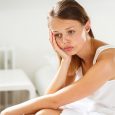7 Ways to Fight Menopause
When you mention menopause, the word elicits groans from women of all ages, from those who’ve been there to those who are facing it in the future. No one likes to experience the side effects associated with this condition.
This time of change affects women physically with the cessation of a monthly cycle, but it also affects the body psychologically and emotionally.
What makes menopause so frustrating in part is the emotional mood swings that go along with the condition. Women going through menopause can experience anxiety that comes and goes and not understand why it’s happening. Anger and depression are also common during menopause.
On the physical side, women can experience night sweats, which can lead to disrupted sleep from having to change out a wet nightgown or change sheets that are soaked.
Hot flashes are common during the day too – where a woman will feel a sudden flush as if her body temperature spiked. Although the body temperature doesn’t really spike, the feeling of a hot flash can make your face appear flushed.
Weight gain and tiredness are also common with menopause as is the appearance of more than normal amounts of facial hair. Vaginal dryness can occur and can disrupt your intimate life, which can add to the feelings of anxiety.
In the past, there have been many synthetic solutions to alleviate menopause symptoms – but with health scares on the rise for that method, more women are turning to natural means instead. Breast cancer survivors also have to find natural methods to combat menopause because estrogen replacement isn’t a viable option for them.
Fortunately, there are numerous natural ways that you can fight back against menopause and they’re easy and inexpensive methods that any women can use to eliminate or reduce the side effects of this condition.
Exercise
One of the simplest ways you can fight back against menopause is to exercise. Some studies are showing that taking part in exercise, even if it’s only three out of the seven days in a week, can greatly reduce the occurrence of symptoms – including the hot flashes that go hand in hand with the condition.
But exercise doesn’t just help with that one symptom of menopause. It also helps you fight back against the weight gain that’s common with this condition. Because your estrogen level is diminishing, the risk of your weight escalating is higher than it would be before menopause begins.
So by exercising, you not only get relief from hot flashes, but you also help your body keep the excess weight gain off. Menopause can cause additional weight gain around the abdomen and exercise can target belly fat, which can lower your risk of developing cardiac issues related to menopause.
Exercise will also help you get a healthier night of rest. The exercise cuts down on the sleep disturbing night sweats, so you’ll get a better night’s sleep. It doesn’t take much, either. Recent studies show a mere two hours per week work wonders.
Many women suffer form an apparent brain fog – which researchers attribute to fitful sleep episodes. So when you get physical activity in during your day and sleep better, it provides more clarity to you as well.
Helping you to maintain steady emotional health is another benefit of exercising for menopause-related symptoms. By exercising, you’ll be less stressed and remain calmer. The endorphins you’ll feel from working out will help alleviate mood swings naturally.
Even if you don’t have the time or the desire to go to a gym, walking around the block or walking at the office are great ways to get in the exercise that you need.
Because of the lowered levels of estrogen that occurs when menopause hits, women are at a greater risk of developing osteoporosis, which can make the bones brittle. Exercise can help menopausal women keep from developing osteoporosis.
Exercising regularly can fight many of the symptoms brought on by menopause because those same exercise endorphins act as pain relievers. Not only will exercising improve your body, but it will improve your mental health as well – enabling you to fight back against the mood swings.
Give it six weeks to feel the full effects of how a little cardio can help you fight back against typical signs and symptoms associated with menopause. There’s even a beauty perk you can enjoy, too – the exercise you do, which helps circulation, contributes to a collagen boost, and fewer wrinkles to combat!
Herbs
Besides exercise, herbs can also help fight back against menopause and many women prefer a more natural choice rather than taking hormone replacement therapy. It’s a long studied fact that the loss of estrogen during menopause is a common denominator in causing symptoms.
One of the well-known ways that herbs can help battle menopause is through the use of natural estrogens found in natural herbs as well as supplements. Phytoestrogen is found in plants and can provide similar benefits like estrogen does for the body.
While some herbs can give the body natural estrogen, other herbs will help the body raise its own level of estrogen. Various herbs can help your body balance the swing of hormones that comes with menopause, which will help you treat any mood swings.
You can alleviate anxiety and do away with stress caused by menopause by using certain herbs. Not only can herbs help with mood swings, but they can also give you relief from the fatigue associated with menopause.
Hot flashes can also be helped through the use of herbs as can vaginal dryness. Many of the herbs you can find that help with menopause also have soothing, sedative properties to help you feel better, faster.
One of the herbs that’s helpful is black cohosh, which has properties that cover a wide range of menopause symptoms – primarily hot flashes. Researchers at the University of Arizona claim that this herb helps women tolerate hot flashes, even though it doesn’t directly reduce the number or minimize them in any way.
Dong Quai is another herb that women use to alleviate menopause symptoms. While your menstrual cycle is erratic during this time in your life, this herb helps regulate it a little more.
You might try taking Ginseng during menopause. This root increases estrogen levels and while black cohosh is said to help women tolerate hot flash symptoms, researchers speculate that Ginseng actually works to reduce the number of hot flashes and their severity.
Red Clover is an herb that also increases estrogen levels and works well for hot flashes and night sweats.
The last herb that helps with this time of your life is Ginkgo Biloba. Whenever you’re experiencing the typical brain fog that comes with menopause, you might try this herb to help give you clarity.
Many women consider using herbs to help with the annoying side of menopause because they’re a better alternative than taking a replacement therapy. Not only can the natural herbs offer relief from the symptoms, but many of these herbs also help women in the fight against the risk of developing cancer because of a lack of estrogen.
Yoga
Menopause is a natural occurrence that is treatable with natural remedies like meditation. There are also forms of meditation that can help you find relief from the life altering symptoms of menopause.
Try yoga as an example. Yoga is an ancient, natural method of optimizing physical health and mental acuity. It’s helpful because during the time of menopause, energy is lost and yoga can help you restore that vitality.
A study at the University of Washington found that menopausal women complained of fewer hot flashes and sleep issues when they engaged in yoga regularly. They had a lower heart rate, improved flexibility and balance – and felt generally less anxiety over the change of life.
A woman’s balance and center core focus often becomes out of whack with menopause due to the hormonal changes she’s experiencing. Some women even experience vertigo during this time.
With these hormonal changes comes the mood swings that can make a woman feel okay one moment, yet irritable and weepy the next. Trying to carry on through life without restoring the balance lost by the hormonal changes can be difficult.
Yoga’s techniques of relaxing the mind and body as well as the spirit will minimize the loss of energy and the loss of peace and balance, too. The exercises done during yoga will restore your body’s hormone imbalance to a level that makes the symptoms of menopause easier to handle.
Many women turn to yoga for help dealing with specific aspects of menopause – such as hot flashes. Practicing certain poses can help make hot flashes less severe. Hot flashes aren’t the only symptom that can be relieved by taking up yoga.
Yoga is also beneficial in helping menopausal women find relief from the frustrating symptoms of insomnia and night sweats. Certain yoga poses not only bring relaxation to the body that’s necessary for sleep, but it gives the body the mental ability to fall into a restful sleep without waking several times through the night because of insomnia.
A benefit of taking up yoga is that you’re replacing the downward effects of menopause and the stress that’s brought on by dealing with these effects with a positive energy. Yoga is for every part of your body and mind.
This meditation practice concentrates the healing energy on every part of a woman that’s affected by menopause, which makes it great when you’re dealing with multiple menopause symptoms.
Yoga is easy to get started with and the classes for beginners are inexpensive. If you don’t have the time to meet for a class, then consider using DVDs that teach yoga at home.
Acupuncture
Another form of alternative help is one that’s becoming more popular among menopausal women. This kind of treatment helps a women’s body achieve relief without the additional use of any medication or replacement therapies.
This form of alternative medicine, where many women are getting relief from the stress of menopause symptoms is acupuncture. Acupuncture is the practice of inserting thin needles into specific areas of the body – or the acupoints – in order to correct the body’s balance.
In a recent study on acupuncture, the treatment was found to help women deal with hot flashes, insomnia and other symptoms associated with menopause. One of the reasons that acupuncture has been so successful treating menopause is that like exercising, this alternative therapy also causes the body to release endorphins.
Treatments involving the use of acupuncture can be tailored to target each individual woman’s symptoms. In 2012, a study conducted at the Henry Ford Hospital in Detroit showed that acupuncture helped participants alleviate both hot flashes and depression.
There were additional perks that researchers found during this study, too. Not only were negative symptoms reduced, but no side effects were experienced. And to top it all off, the participants had an increased sex drive!
Mediterranean Diet
It’s a fact that menopause throws a woman’s hormones off. During menopause, more than ever, it’s important for a woman to change any unhealthy eating habits to make sure her body is getting the right nutrients.
By switching to a specific way of eating that targets problems caused by menopause, you can help lower the severity of – and in some cases eliminate – the symptoms and health risks brought on by menopause.
One of the most recommended ways for a woman to eat during menopause is called the Mediterranean Diet. This is a diet that focuses on normal, healthy eating such as fruits, whole grains, and vegetables.
But it also has an emphasis on foods containing Omega 3. The reason this is important is because Omega 3 can fight back against mood swings and it can also lower the frequency of hot flashes.
You can find Omega 3 in foods recommended on the Mediterranean Diet – like certain types of fish such as sardines or salmon – as well as nuts and seeds like walnuts and flaxseed. The consumption of legumes and lentils, oats and foods that are plant based fit in well with this diet.
The foods have been found to reduce hot flash symptoms by up to 55%, according to a study conducted by the Menopause journal. They also help reduce heart disease and stop depression from taking root.
One of the notable changes with switching to the Mediterranean Diet is found in the changing of types of oils. Olive oil is recommended for women going through menopause versus using oils with saturated fats.
Though some diets cut out red meats and diary products, the Mediterranean Diet encourages the consumption of both – as long as the servings are done in moderation and aren’t consumed too often.
Soy
If you’re a woman going through menopause right now and you don’t have soy as part of your diet, then you might want to think about changing up your meals to include this valuable resource.
Soy has been found to fight back against the frustrating symptoms of menopause. It’s especially helpful for women experiencing hot flashes. Though many people have small amounts of soy in their diet, you need to make sure that you’re getting at least two servings every day.
Several studies highlighted by the journal Menopause found that two servings a day reduced both the occurrence and severity of hot flashes by up to 21-26%. Supplements are not the same – and researchers warn against those. Instead, get your soy from food sources.
The reason that soy is so beneficial to menopausal women is because there are isoflavones in the soy protein. Isoflavones help keep the estrogen level balanced. With the balance of the estrogen, you’ll find relief from symptoms like night sweats and hot flashes.
Soy can also help fight against weight gain caused by estrogen loss. You can find foods containing soy in items like soybeans, soymilk, soy sauce, edamame, tofu and soy nuts. Soy paste is also helpful for women with menopause symptoms.
Deep Breathing
If you’re looking for a quick and helpful home remedy that can alleviate symptoms of menopause, then you can learn how to do deep breathing techniques. This technique is useful because it can help the body (and mind) relax.
Deep breathing should be done using the diaphragm, sometimes referred to as abdominal breathing. When using this technique, breathe in deeply, hold for the count of a few seconds, and then exhale slowly.
You can tell if you’re doing the breathing form correctly if – when you have your hand on your stomach – you feel your hand move upward. This technique should be practiced at least twice a day – once in the morning and again in the evening.
But anytime you feel a symptom related to menopause, deep breathing can be beneficial. The length of your deep breathing exercises should be between ten and fifteen minutes each time.
If you start to experience a hot flash, you’ll want to use the deep breathing technique. Because a hot flash causes a response in the nervous system, deep breathing helps calm that response and makes the symptoms not as difficult to deal with.
Deep breathing helps you handle stress and deep breathing techniques are also taught in meditation classes such as yoga. You’ll enjoy the added benefit of seeing your blood pressure stabilize.
Recommended Products For Fighting Menopause












